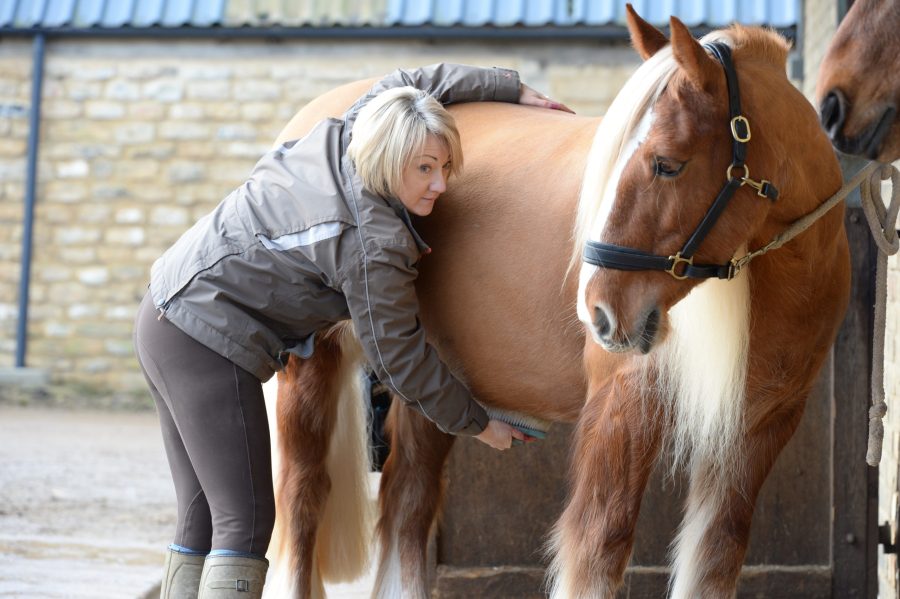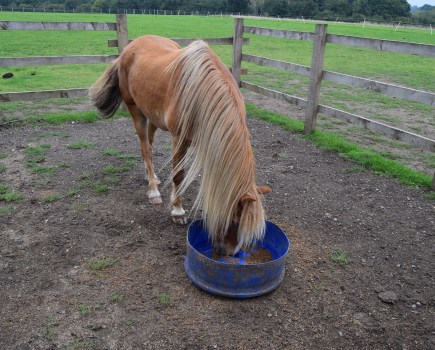Save money while still owning and riding a horse? We’ll admit that this isn’t a sentence that’s often associated with horses. But at a time when the costs of living are so high and continuing to rise — putting considerable strain on everyone’s purse strings — there are small changes you can make that can add up to big savings, without having to compromise on the care you give your horse.
1. Turn him out
If it suits your horse to live out, living out can help to keep costs such as bedding and hay down. Providing a field shelter gives him the option for protection, and puts less time pressure on you to be at the yard to turn him in or out at certain times of the day. It’s also a more natural way for your horse to live — bonus!
2. Make bedding go further
If you choose to stable your horse, add clean bedding to the banks and gradually use it over the week, rather than putting it all down, as this will make it last longer.
If you’re on a yard, consider buying bedding in bulk together in order to cut down on some costs — there is often a discount if you buy in bulk. Just make sure you have somewhere clean and dry to store it first.
3. Consider your training options
Lessons can be expensive, but they don’t have to go on hold.
Look for clinics or group lessons, where you can share the costs with other riders. You can learn on your own horse, as well as picking things up from watching other riders.
If you have regular lessons with a trainer, ask if you could shorten your lesson from 60 to 45 minutes, or from 45 minutes to 30. Ensure you’ve thoroughly warmed up so you can get straight into the session when your coach arrives.
4. Transport together
If you want to go out and about, get together with other riders from your yard or nearby to share transport and fuel costs. If an event is local enough, you could even hack there as your warm-up.
5. Stay on top of vet and farrier visits
It might be tempting to push back your horse’s next shoeing a week, remove his shoes altogether, or hold off getting his teeth checked for another few months in order to avoid a bill. However, this is often false economy, because staying on top of your horse’s health means you’re more likely to prevent problems — or catch them early.
If suddenly you’re not doing that, you could find yourself on the receiving end of an unexpected, even bigger bill. The same goes for physio visits and checking the fit of your tack too.
6. Ask about discounted vet fees
As we mentioned above, veterinary care is a necessity that shouldn’t be scrimped on, but there are ways to make it more cost-effective.
Ask your vet practice if they do any discounts for booking in advance, on certain days, or for visits with a minimum number of horses. Many vets operate with reduced call-out fees when seeing a certain number of horses, or when visiting yards in particular areas.
Save on multiple call-out fees by group procedures, such as having your vet do your horse’s annual vaccinations and a dental check-up at the same time. If your vet charges by time rather than procedure, make sure your horse is ready for when the vet arrives.
7. Don’t waste money on feed or supplements you don’t need
A fully balanced diet is imperative for every horse all-year-round — and that means different things for each horse. You absolutely need to keep feeding your horse according to his needs and the time of year, of course, but in doing so make sure you’re not spending money on feed unnecessarily.
For example, are you feeding hard feed at the recommended levels? Check the back of your feed bag to find out. If not, your horse may not be getting all the nutrients he requires and so you’ve started topping up with another feed, or a supplement, to provide it.
Or perhaps you’re feeding too much? Regular weigh taping and body condition scoring isn’t just good for your horse’s health — it’s good for your pocket too. If he needs less or something different, chances are it will save you a few pounds too.
Speak to a nutritionist for advice.
8. Take care of your kit
Taking good care of your equipment saves money in the long run. Regularly cleaning your tack and rugs, as well as storing them properly, will save you from having to buy replacements.
Selling equipment you no longer use can help to fund anything you do need to buy.
9. Consider finding a sharer
If you’re really feeling the pinch and it’s an arrangement that would suit you and your horse (more opportunity for him to be ridden, for example), finding a like-minded horse lover to share the workload and bills can be a good solution.
Don’t rush into it though: make sure they are suitable and of a riding/knowledge level good enough to ride and look after your horse (and vice versa). You’ll want to have your arrangement in writing too so that you both know where you stand and exactly who is responsible for what.
This scenario doesn’t suit everyone, but it can also work very well. There are a lot of people out there who would love a horse, but can’t afford the time or money to have one full time and plenty of owners in need of a bit of help.









